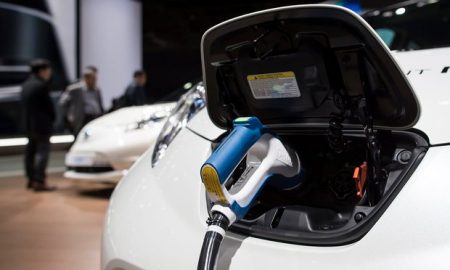October 18, 2016 – Dr. Hans-Christoph Hirt, co-head of Hermes EOS, a European investment house, along with 249 other global investment firms has told the automotive industry that it needs business strategies “resilient to climate change and resulting regulatory shifts.” The investment groups have called for vehicle producers to put climate change experts on their boards of directors or else face the fleeing of capital investment from their companies. Hirt states, “long-term investors want to ensure that automotive companies are prepared for the challenges stemming from climate change.”
There are now more than 1 million electric vehicles (EVs) on roads today. But to address transportation’s carbon footprint, vying with utilities and the energy industry today for being at the top of the pyramid of greenhouse gas polluters, that 1 million number needs to grow to 1 billion. Manufacturers have in the past paid lip service to EVs. They have added a few models to their mostly internal combustion and diesel engine lineups and used the EVs to help them meet government fleet mileage and emissions regulations. It is only since Tesla began ramping up the production of its Model S, announced its Model 3 with over 400,000 pre-orders, and General Motors, its Volt and now Bolt EVs that we are beginning to see a different industry approach.
Investors are telling established automobile manufacturers that they face a threat from new entries to the vehicle sector that are pure EV based. Companies in China like Chery International, Zotye International, BYD, Kandi, BAIC and Geely are EV evangelists and as entrepreneurial as Tesla. And they have state backing, little overhead and existing infrastructure dedicated to older fossil fuel burning technologies, and a government attempting to impose some of the toughest greenhouse gas emission regulations on the planet to deal with its urban pollution problems.
A new Institutional Investors Group on Climate Change (IIGCC) report published in the last week points out that regulating carbon emissions means vehicle companies are continuing to back the wrong horse in sticking with their existing business models. That tougher vehicle emission standards to meet government obligations under the Paris climate change agreement will force the industry’s hand.










